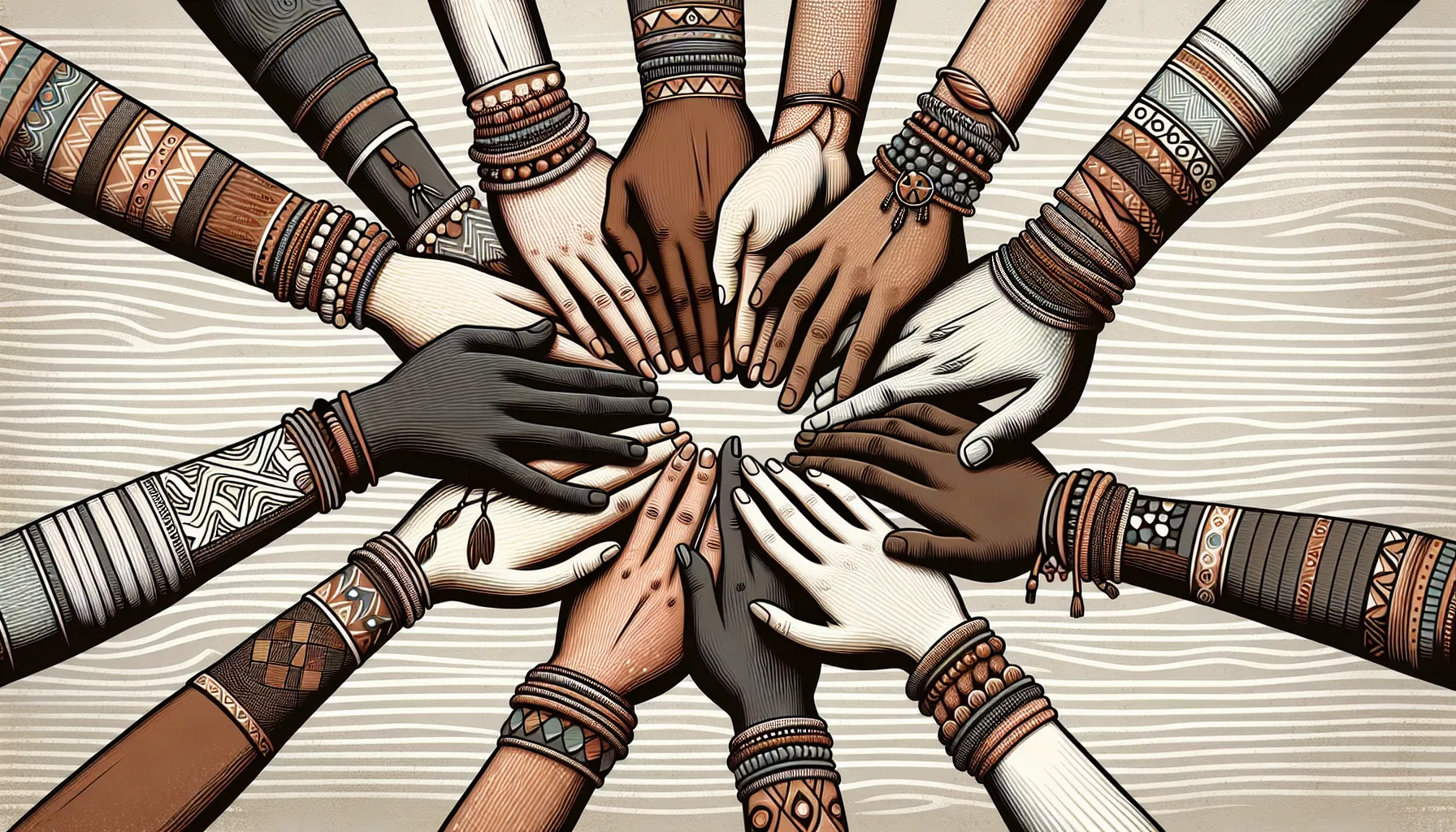
The Importance of Platonic Relationships
Recent studies have illuminated the symbiotic nature of friendship and its influence on our health. It appears that the characteristics we cherish in our friends—intimacy, warmth, and unwavering support—are not just desirable but essential for our psychological resilience. A friend is not just a companion for leisure; they are a sanctuary in times of strife, a mirror reflecting our true selves, and a catalyst for personal growth. When the lines between friendship and romance blur, we find a deepened satisfaction in our romantic partners, underscoring the universal need for a best friend.
The health benefits of such Platonic bonds are not merely anecdotal. Studies link quality friendships to decreased levels of anxiety and depression, especially poignant during adolescence. Moreover, having a friend to share life’s burdens can act as a buffer against the stress of marital discord. It’s evident that our connections with friends are not just a pleasant diversion but a lifeline to enduring happiness and stability.
- Platonic friendships offer support and enhances self-esteem.
- Physical health benefits also emerge, with strong social connections being linked to a decrease in health risks and even early mortality.
- Cross-gender friendships enrich our lives with diverse perspectives and can provide insight into understanding relationships with the opposite sex.
- Trust and humor are pillars of platonic friendships, creating a safe space for sharing secrets and enjoying each other’s company without romantic expectations.
- Friendship’s resemblance to romantic relationships lies in the shared qualities of intimacy and warmth, which can lead to more fulfilling romantic partnerships.
- The social support from friends can mitigate the negative effects of marital conflict, underscoring the interconnectedness of our various types of relationships.
Romantic and Sexual Relationships Defined

Romantic relationships, with their intricate layers and emotional depth, are often likened to a dance. Two individuals step closer, not just in physical proximity, but in a profound emotional entanglement that transcends the bounds of mere attraction. Romance involves a blend of passion, intimacy, and commitment—a trinity of components that, when in harmony, create the melody to which love’s dance flows.
In contrast, sexual relationships may strike a different chord. Here, the connection is sparked by physical desire, a magnetic pull driven by the primal urge for sexual experiences. While these relationships can be deep and fulfilling, they do not inherently possess the layers of romance—the shared dreams, the mutual growth, and the enduring bonds that withstand the test of time. It’s not to say that sex and romance are mutually exclusive; indeed, the most vibrant romantic relationships often include a passionate sexual connection. However, the distinction lies in the emotional infrastructure—the desire for a connection that weaves itself into the fabric of our lives beyond the bedroom.
Understanding this distinction is crucial for navigating the waters of human connection. It helps us articulate our needs and desires, ensuring that the relationships we foster align with our true intentions. Whether we seek the fiery sparks of passion, the warm embers of friendship, or the radiant glow of romance, recognizing the nuances of our connections enables us to seek fulfillment in its truest form.
Real connection in romance is not just about being physically close; it is about being seen, known, and valued. It is about allowing yourself to be vulnerable and intimate in ways that transcend the physical.
Unique Relationship Dynamics

Unconventional relationships often emerge from the shared crucible of intense experiences. When individuals traverse the valleys of grief together, they can form a bond that is as profound as it is unorthodox. These relationships are built on a foundation of mutual understanding, where empathy and shared sorrow carve out a space for a connection that defies categorization. The potency of these bonds is in their ability to provide solace and understanding when the rest of the world seems distant.
Similarly, experimental phases in a person’s life can lead to relationships that challenge traditional norms. Whether exploring new facets of one’s identity, such as during a “gap year” adventure, or engaging in community-based movements, these phases often foster dynamic interpersonal connections. These relationships are marked by a spirit of exploration and can be transient yet impactful, leaving indelible marks on our personal growth trajectories.
The dynamics of these unconventional relationships remind us that human connection cannot be neatly boxed into predefined categories. They represent the fluidity of the human heart and its capacity to find kinship and affection in the most unexpected places.
- Open relationships: Non-exclusive partnerships that embrace having multiple romantic or sexual partners.
- Experimental relationships: Transitional connections that allow individuals to explore new perspectives and influence future relationship choices.
- Toxic relationships: Unhealthy bonds characterized by insecurity, unhappiness, and a lack of mutual respect.
- Held by grief relationships: Bonds formed through shared loss or grief, which may dissolve as healing occurs.
- Opposites attract relationships: Dynamic pairings where partners have differing qualities, offering balance and personal growth.
- Platonic relationships: Deep friendships without sexual or romantic elements, offering strong emotional support and companionship.
- Scripted relationships: Partnerships based on societal or familial expectations rather than a genuine emotional connection.
- Career-oriented relationships: Connections where professional ambitions take precedence, influencing the relationship’s dynamic.
- Unhappy relationships: Partnerships persisting despite dissatisfaction, often due to fear of change or external pressures.
- Long-distance relationships: Bonds maintained over geographical distance, requiring trust, communication, and commitment.
The Role of Marriage in Personal Relationships
Marriage is an institution as ancient as civilization itself, a union woven into the very fabric of societies around the globe. It serves as a legal contract, a bond sanctified by religious traditions, and a personal commitment that stands as a testament to enduring love and partnership. Legally, marriage confers a myriad of rights and responsibilities, from tax benefits to next-of-kin status, making it a critical marker of societal recognition.
Religiously, marriage often carries profound significance, a sacred rite that unites individuals not just in the eyes of the law, but in the eyes of their faith. The rituals and ceremonies that accompany this event vary widely, yet they all underscore marriage as a milestone of spiritual significance.
On a personal level, marriage is a public declaration of love and intent to build a shared life. It is a pledge of support, a promise of companionship through life’s peaks and valleys. Marriage can also be a canvas for personal growth, as partners navigate the complexities of life together, shaping and being shaped by one another. As we consider marriage’s multifaceted role, we see it as more than a tradition—it is an evolving narrative of human connection.

Navigating Long-Distance and Rebound Relationships
Sustaining love from afar is akin to tending a delicate plant across a great distance—a feat that demands dedication, creativity, and a steadfast commitment to nurturing growth. Long-distance relationships are testaments to the resilience of love, where distance becomes a canvas upon which trust and communication paint a picture of lasting connection. Technology bridges the gap, but the true linchpin is the emotional bandwidth that both partners invest, ensuring that the heart’s connection remains unbroken by miles.
On the flip side, the rebound phenomenon is a complex dance of human emotions that often follows the end of a relationship. It’s a journey of seeking solace, sometimes hastily, in new connections to fill the void left by loss. While rebounds can provide temporary comfort, they can also cloud judgment and hinder the healing process. The key is to tread these waters with self-awareness and to recognize that healing from a relationship’s end is a personal voyage, one that may not always require the company of another.
Both long-distance and rebound relationships navigate the intricate web of human emotions, challenging our conventional understanding of how love can and should flourish.
Distance does not ruin a relationship; doubts do. And sometimes, the quickest path back to yourself is to walk away from what you once thought you needed.
The Inclusive Term ‘Partner’
Unlike terms that may carry historical or cultural baggage, ‘partner’ is neutral and modern, offering a sense of solidarity and unity that is paramount in contemporary relationships. It acknowledges the myriad forms love takes in our lives and the various ways we commit to one another, making it a term that is as adaptable as the human heart itself.
Using ‘partner’ signifies a conscious choice to honor the connection between two individuals as a mutual journey of support, growth, and deep affection.

FAQ
-
A platonic relationship is characterized by a deep, non-romantic bond between individuals, where emotional intimacy flourishes without sexual attraction. It is grounded in mutual respect, intellectual connection, and shared interests, forming a foundation of lasting friendship.
-
Open relationships diverge from monogamy through their allowance of additional romantic or sexual partners, necessitating robust, transparent communication and agreed-upon boundaries to maintain trust and respect among all involved.
-
Toxic relationships are often marked by persistent disrespect, manipulation, and emotional abuse, eroding trust and self-esteem, and creating a cycle of negativity that’s hard to break.
-
Long-distance relationships thrive on consistent communication, trust, and shared goals, with regular virtual or in-person meetups to maintain the emotional connection.
-
The term 'partner' signifies a shift towards inclusivity and equality in relationships, embracing the varied ways love is expressed and recognized in contemporary society.










